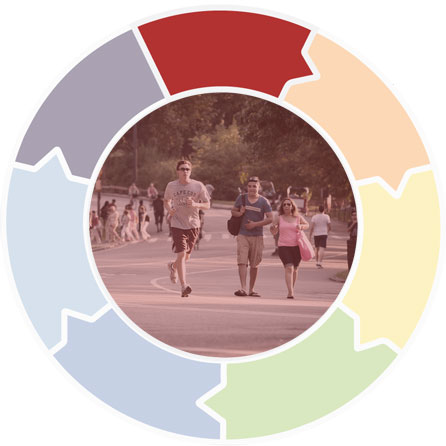Description
Community health assessments help provide insight into the community you serve. They are an important component in helping you determine where to focus resources and interventions. In this 45-minute module, you will learn more about the components of community health assessments including the types of data commonly used.
This is module 2 of the Evidence-Based Public Health Training Series. It is meant to stand alone, but you may also take it together with the other modules in this series to receive a certificate in Evidence-Based Public Health.
To complete this course, you must watch the instructional videos, pass the quiz, and complete the course evaluation.
Learning Objectives
- Explain the reasons for conducting a community assessment
- Define the components of a community health assessment
- Identify the types of data for assessing the needs and assets of the community of interest
Intended Audience
State, local, and tribal public health professionals and students
Instructor
Holly Wolf, MSPH, Colorado School of Public Health
Duration
This course will take 45 minutes to complete.
Format
This course consists of instructional videos, a quiz, activities, and a guide for discussion and additional learning.
Accessibility
This training is being delivered in a 508-compliant interface. During development of this training, we attempted to make the content accessible to individuals using screen readers. If you encounter trouble accessing the instructional materials by screen reader, or need any other accommodations in order to access the instructional materials, please contact NWCPHP, and we will do our best to make sure the content is accessible to you.
Acknowledgments
This training is brought to you by the Northwest Center for Public Health Practice, the Rocky Mountain Public Health Training Center, and the Prevention and Research Center in St. Louis, Missouri.
A facilitated version of this training is available through the Rocky Mountain Public Health Training Center.
The content of this training was adapted from an in-person training course and based on the work by Ross C. Brownson, PhD.
